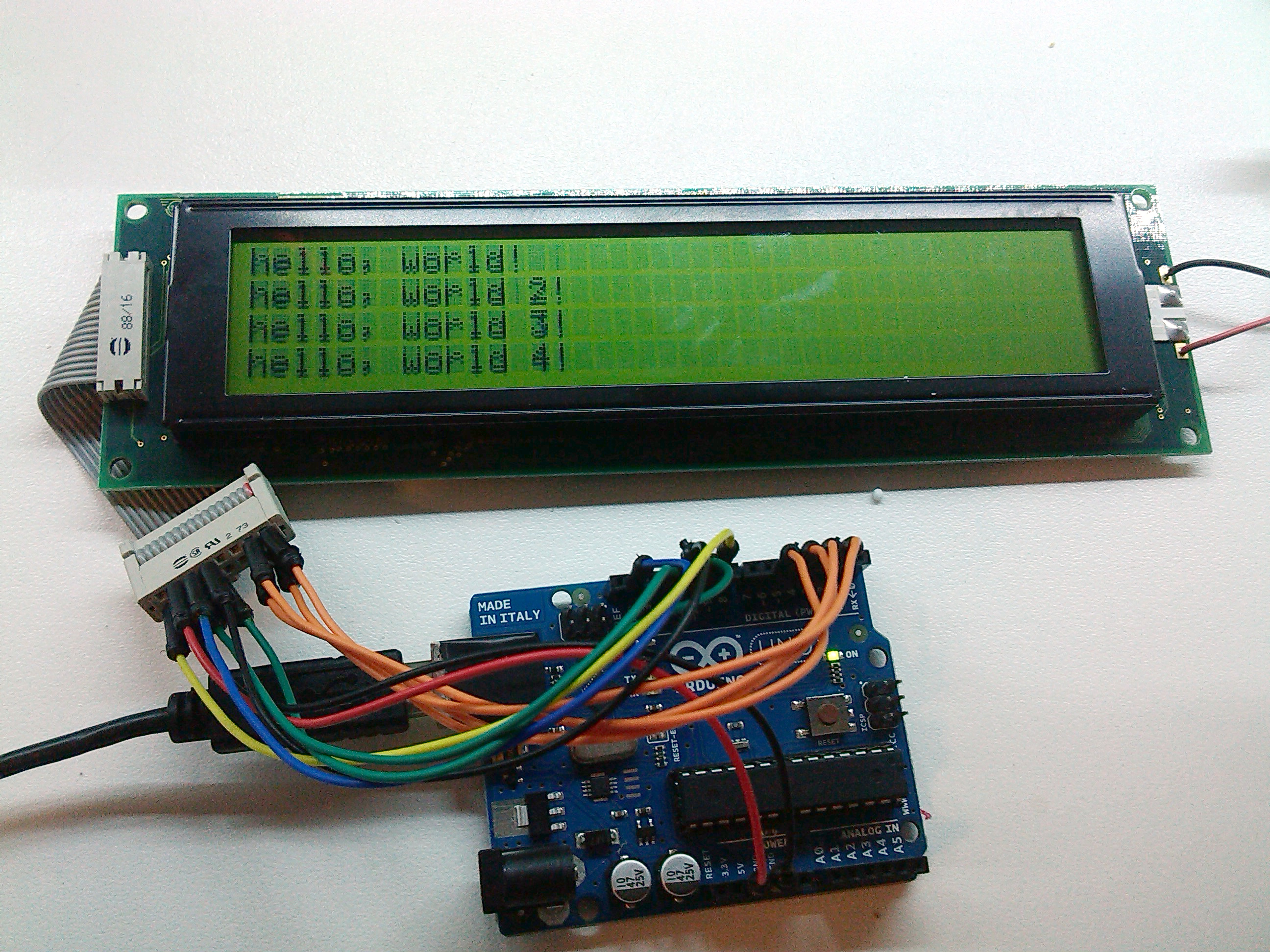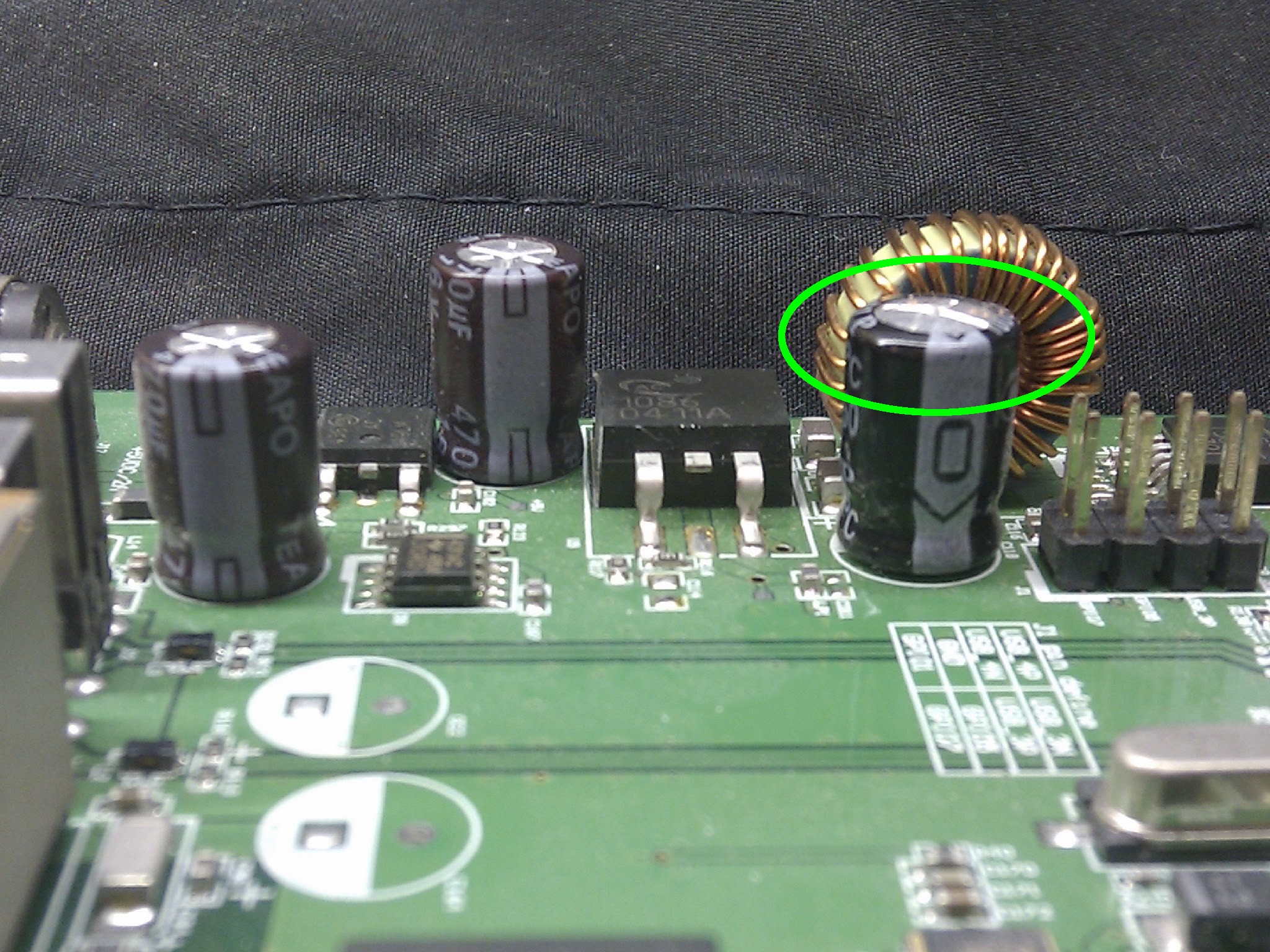I recently obtained a handful of used 40×4 (40 characters, 4 rows) LCDs with backlight. These displays are produced by Powertip.

Let’s try to get this Powertip PC4004-A LCD working with Arduino… Continue reading Powertip PC4004-A 40×4 character LCD
I recently obtained a handful of used 40×4 (40 characters, 4 rows) LCDs with backlight. These displays are produced by Powertip.

Let’s try to get this Powertip PC4004-A LCD working with Arduino… Continue reading Powertip PC4004-A 40×4 character LCD
Every time Ubuntu updates installs a new Linux kernel, your VirtualBox is likely to be broken. I got these error when starting my virtual machine:
The virtual machine 'xxx' has terminated unexpectedly during startup with exit code 1.
and
Kernel driver not installed (rc=-1908) The VirtualBox Linux kernel driver (vboxdrv) is either not loaded or there is a permission problem with /dev/vboxdrv. Please reinstall the kernel module by executing '/etc/init.d/vboxdrv setup' as root. If it is available in your distribution, you should install the DKMS package first. This package keeps track of Linux kernel changes and recompiles the vboxdrv kernel module if necessary.
This is how I can solve it:
sudo apt-get remove virtualbox-dkms sudo apt-get install linux-headers-`uname -r` sudo apt-get install virtualbox-dkms
Tested on Ubuntu 13.04 with VirtualBox 4.2.10. Hope this keeps on working!
I am one of the lucky five who have received an EL shield from Seeed Studio’s first monthly give-away. I applied for the give-away because I have never worked with EL lighting before and I wanted to test if I could illuminate my bicycle with it. This post has a small introduction on EL lighting, how I used it to light my bicycle and finally a review of the Seeed Studio EL shield. Continue reading Seeed Studio EL Shield Review
I recently bought two OLIMEXINO-32U4 boards on eBay. This is how I wrote the Arduino Leonardo bootloader on them using my Ubuntu Linux desktop PC and a USBasp programmer: Continue reading Writing the Arduino Leonardo bootloader to the OLIMEXINO-32U4
The Atten 858D Hot Air Rework Station is a very handy tool. Until now I have only used it for removing some SMT components and for heat shrink tubing. Check the EEVblog for an in depth review of the Atten 858D.
Like any cheap Chinese gear, you should open it before turning it on to make sure it is electrically safe. My unit did have a grounded heat element, but the case was not grounded. This was easily remedied by sanding down the paint on the inside of the case around the mounting holes of the transformer and then making an additional connection between the ground pin of the mains input and one of the mounting screws of the transformer. A quick continuity check confirmed this hack was a success.
This Atten hot air rework station has a very nice feature: when you put the element in the stand, the heating element turns off and the nozzle keeps blowing until the temperature drops below 100°C. Although I regularly knocked the handset down because my rework station was on the front of my desk, I hesitated to put it more in the back. The backdrop of my workspace is a wooden panel and it would not withstand the initial heat escaping from the rework station… Continue reading A heat shield for the Atten 858D hot air rework station
This central heating monitoring system I am working on is built around an Arduino Uno. I want to hook it up to a Asus WL-500g deluxe router running OpenWRT. I found that this router has an internal header with two serial ports and I was planning to use one of these ports to link to my Arduino.
Pondering how I was going to do the logic level shifting from the 3.3V on the Asus to the 5V on the Arduino, I wondered if it would be easier just hooking up the Arduino via one of the two USB ports on the Asus WL-500g deluxe router. Plugging in the Arduino via USB did not look very promising, a dmesg only showed:
usb 2-1: new full speed USB device using uhci_hcd and address 2
Plugging in the Arduino on my Ubuntu Linux desktop showed that the Arduino is a “USB ACM” device:
[25009.512051] usb 3-3: new full speed USB device using ohci_hcd and address 4 [25009.731110] cdc_acm 3-3:1.0: ttyACM0: USB ACM device
So, I needed some kind of ACM driver for OpenWRT. A quick search revealed that I needed the usb-acm kernel module, so that is what I installed:
root@OpenWrt:~# opkg update root@OpenWrt:~# opkg list | grep -i acm kmod-usb-acm - 2.6.32.16-1 - Kernel support for USB ACM devices (modems/isdn controllers) root@OpenWrt:~# opkg install kmod-usb-acm
Plugging in the Arduino now shows the right logs in dmesg:
usb 2-1: new full speed USB device using uhci_hcd and address 3 usb 2-1: configuration #1 chosen from 1 choice cdc_acm 2-1:1.0: ttyACM0: USB ACM device
So we can now use /dev/ttyACM0 to talk to the Arduino. Ciao, mondo!
root@OpenWrt:~# ls -l /dev/ttyACM0 crw-rw-rw- 1 root root 166, 0 Oct 25 23:36 /dev/ttyACM0
I had opened my Asus WL-500g deluxe router because I was planning to hook something to the internal serial port header. I immediately spotted a dodgy looking capacitor.
This 6V 1000µF capacitor had a bulging top and after desoldering only measured 5µF! I replaced it with a 16V 1000µF capacitor:
The area around the capacitor is getting pretty hot, that is why I plan on adding a fan later.